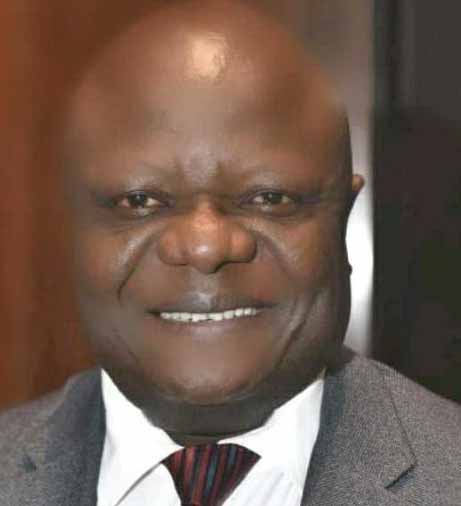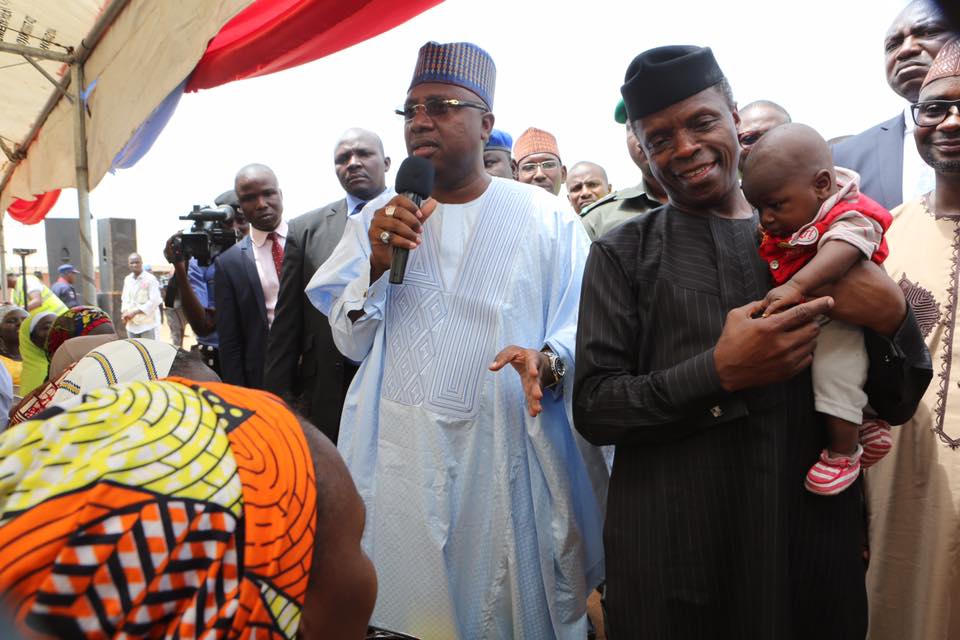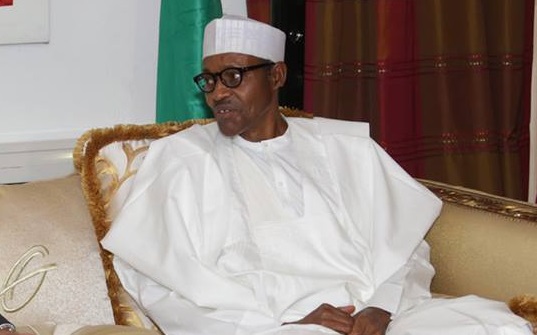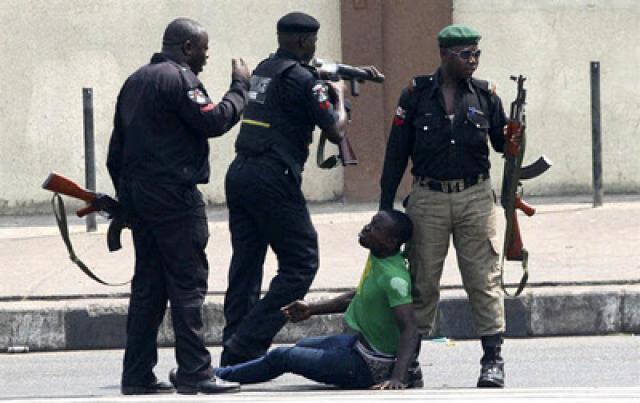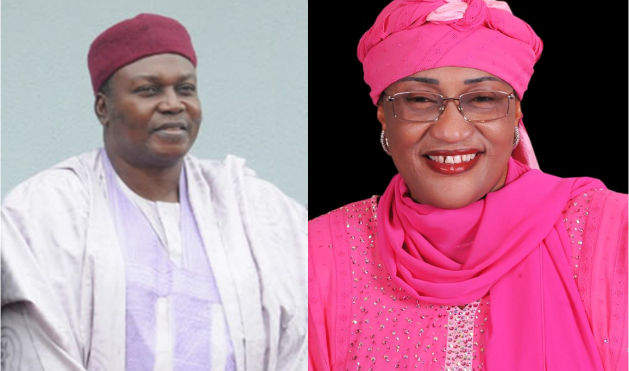Tell a chauvinist somewhere in the more civilized world that you are headed for Africa, and he will wonder why you’ve chosen a land of malaria, of crime, of disease, and bad government as your destination. Then tell a chronic Lagosian that you have an engagement in Abuja and will be there for a while. “What!” he might scream, “that dull city of bombs, bullets and corruption!?” Then reverse it: let a regular Abuja resident know that you are due for Lagos. “Oh my God! Lagos?” he could scream, “They’ll smash your car in the traffic! Or your cab man might take you elsewhere! I won’t try Lagos!” Then probably tell no Lagos or Abuja resident that you are on your way to Yola, the capital of Adamawa State, in the North-Eastern flank of Nigeria, where Boko Haram makes occasional forays. “What for?” you might be told “why walk in harm’s way? You are too young to die” An alarm then ring in you, typifying yet again the kind of fear often constructed for a distant, unfamiliar territory.
Can anyone really blame the other for nursing fears about a place, or a people where we are ignorant of? The image of a location is regularly constructed over time, through media portrayal. The media, is of course the harbinger of the good, the bad and the ugly, and more of the last two items. So if a narrative is persistently negative, it culminates into a poor brand for the subject in focus.
Though Adamawa is grouped amongst the terror ravaged states, the insurgents have hardly been physically present in Yola town, until the recent bombings though. Madagali and Mubi Local Governments have not been that lucky: they have been severally rattled by the fundamentalists. Regardless, Yola, being the capital of the bigger Adamawa has suffered the pains of generalizations. It is therefore understandable, if the distant other cannot imagine that humans still live in Yola, or if it is difficult to appreciate that the city remains a burgeoning state capital with some of the best legacies, public and private tertiary institutions in the country.
I had been invited as a visiting professor of Communication and Multi-Media Design at the urbane American University of Nigeria (AUN) in this glorious city. The call was exciting in view of the experience it was going to offer and the opportunity to expand knowledge genres beyond my so-called English orientation. The American pedagogic style was on offer at AUN. I intimated a few friends and relations about it. A majority advised against it.
Advertisement
“Boko Haram can attack the place any time. Be warned Boy!” A crazy pal even additionally joked: “I doubt if you can still run despite your tennis!” He probably imagined a chase! And then my having to sprint in escape when the fundamentalists come calling. My driver did not also help matters when I eventually told him to hurry up to the airport so I won’t miss the early morning Yola flight. “Yola! Yola!!” the guy screamed. “Yes!” I answered. “Aaaaah….Yola!” He screamed again. I ignored him reasoning that he was already seeing me as a dead man, or better still, as a man on a date with death.
Thereafter, however, my excitement began to wane. What to do? I called my potential host Professor Jacob Udo Jacob, the chair of Communications and Multi-Media Design (CMD) at the AUN and asked questions about security. Ever calm, ever methodical, he allayed my fears with an eerie serenity, even making me wonder why I asked the question in the first place. The airplane took off and did not ascend as usual: it ceased climbing obviously in deference to Control Tower instructions. Again, the fears came back: maybe I should not have gone in the first place. I remembered my girls, Doyinsola, Oyindamola and Oyinkansola. Some eschatological fears! “Devil, you are a liar!” Some seconds afterwards, the airplane concluded its ascension, and about fifty minutes later, we landed in Yola Airport.
From the time I climbed down the gangway, everyone on sight was a potential terrorists. That would soon seem a bad mental construction of Yola residents. The driver on hand to pick me began the deconstruction of that wrong impression, gradually educating me about how peaceful the city is, how hospitable the people can be, and how rich, differentiated and appealing the cultures are. He need not border too much. The signs were there for the blind the see and for the deaf to hear. Through the ride in the sunny weather of Yola streets, and from viewing the dedicated traders along the roads, some landmarks, complexes and official structures, it was clear that this city is just another regular Nigerian capital city, simply suffering from a battered image: No thanks to Boko Haram.
Advertisement
Arriving the AUN campus was the killer punch. The founder, former Vice-President, Alhaji Atiku Abubakar sure had vision. The school premises is quite expansive, tranquil and creatively designed. It compares well with some other great private universities in the country like Baze University, Abuja, Covenant University, Lagos and Afe Babalola in Ado-Ekiti amongst others. With an imposing state-of-the-art library, a well-constructed cafeteria and many covered walkways, the university had clearly set out to make a statement on the relevance of environment to learning.
University President, Margie Ensign was smartly welcoming. Busy and precise, she leads a team of tens of foreign scholars and researchers holed in this North Eastern private endeavor. Over thirty countries are reportedly represented on the University’s faculty list. Classical university practices as witnessed those days in first generation Nigerian universities, where faculties were invited from across the globe to spend time at the school is in vogue here. Most of them have been this, or been that in some famous schools in North America and Europe.
Many have also been experienced public servants, internationalists, or diplomats. They pace around the campus in assured steps, while their classroom voices put the students to attention. Again the facilities compare well with some of the best in the world, and the benefiting students are no less qualitative: they are eager, mindful of the class of school they belong, and are an admixture of the conservatives, and the liberals. The university remains a public relations boost for Atiku, Yola town and indeed the entire North-East.
With curfew still in town, I thought I should head for my lodge at 6p.m.! You are mistaken! The city offers a rich night life, with students from the many other higher institutions around, workers and politicians being the main actors. The University’s staff club is more than enough for assorted foods and drinks. But just in case you are bored with the academic environment, please take a stroll, or a drive to Jimeta (an area hardly clearly distinct from Yola), and have it all the way you desire it.
Advertisement
The hotels are many, the bars are sprawling and the gardens are mushrooming. You are just going to wonder if this is the same Yola that had had its image rightly or wrongly battered by reports of the guns of Boko Haram. The supermarkets, and many other stores await your patronage up until about 9 or 10p.m., just like in other cities. Life seem quite normal, without the reported bomb airs, and with residents possibly oblivious of the perception of their city in the distance.
Of course, a few security posts and checks are present on the streets, but they are not as prevalent as you would see in Lagos or Abuja. The community looks predictable. It is sleepy, rural to some extent, official in another breadth, amid a minimal private sector presence. Regardless, the city flourishes, even with regrets over the serial failures of governments to fix some major roads and many arteries, irrespective of the age of the city, from its time as the capital of the old Gongola State.
But then, this serene and emergent university town is reputed as the capital of the state that has produced some of the nations’ most illustrious citizens including former Vice President, Alhaji Atiku Abubakar; celebrated mathematician, Prof. Iya Abubakar; notable physician and administrator, Prof. Jibril Aminu; reputable public servant, Alhaji Ahmed Joda; prominent politician, Alhaji Bamanga Tukur; anti-corruption great, Mr. Nuhu Ribadu; and retired soldier and administrator, General Halidu Hananiyan. Then as you step onto the airplane to return to your base, you encounter one, two, or three of these men, or some other prominent persons at the airport, and then you wonder why you should be afraid of Yola if these fellows trudge on, under the weight of the representation or misrepresentation of the city. You just wonder!
Advertisement
Views expressed by contributors are strictly personal and not of TheCable.
